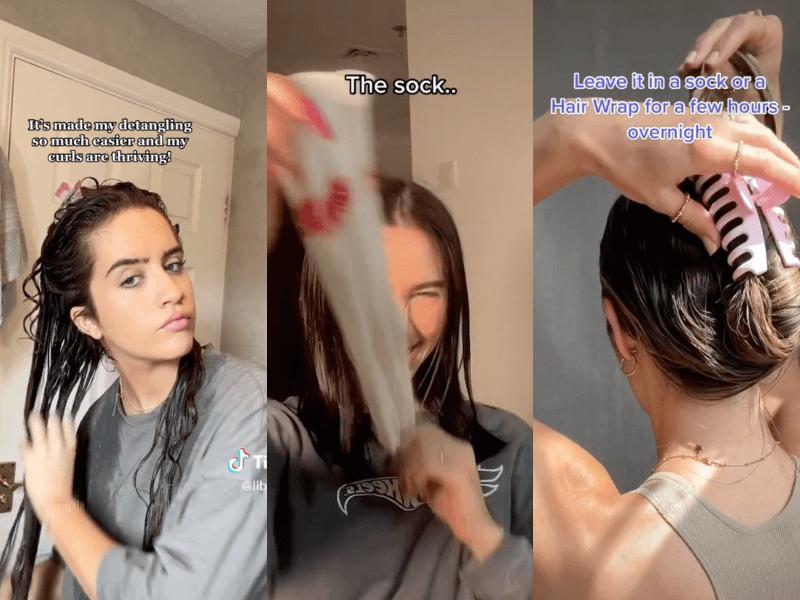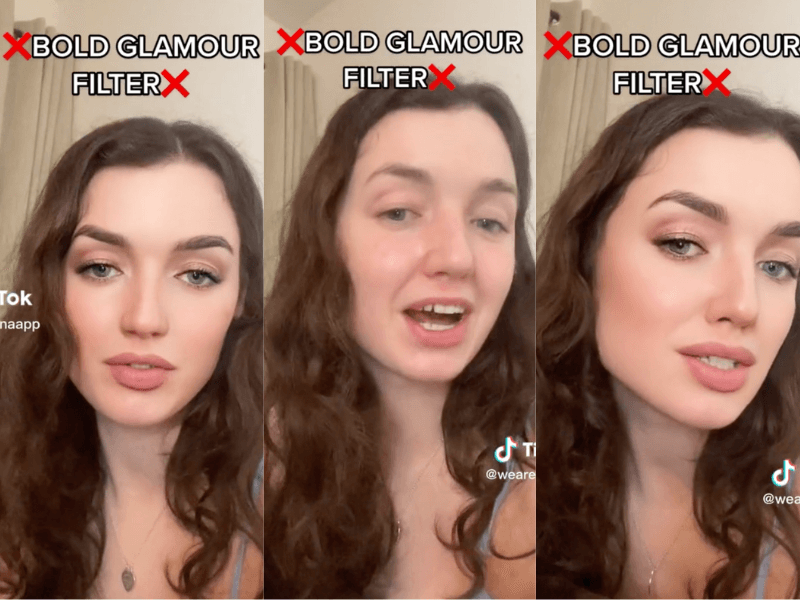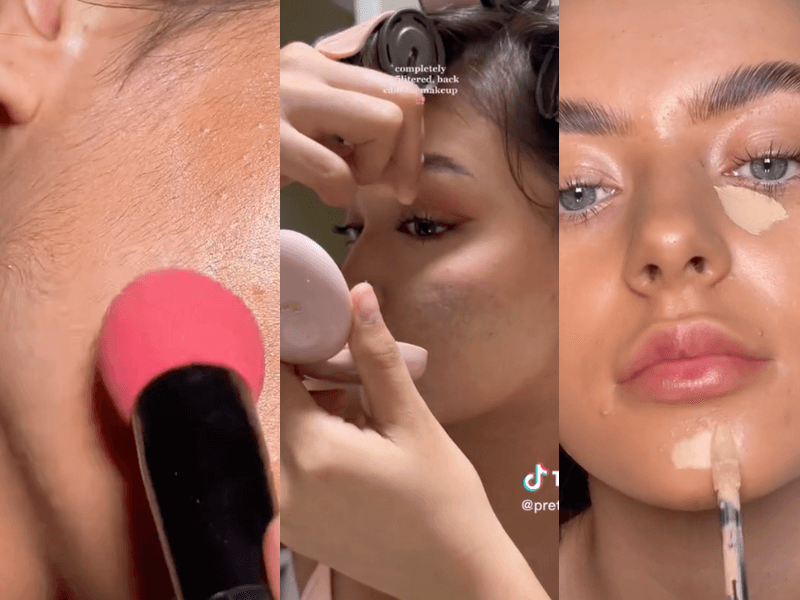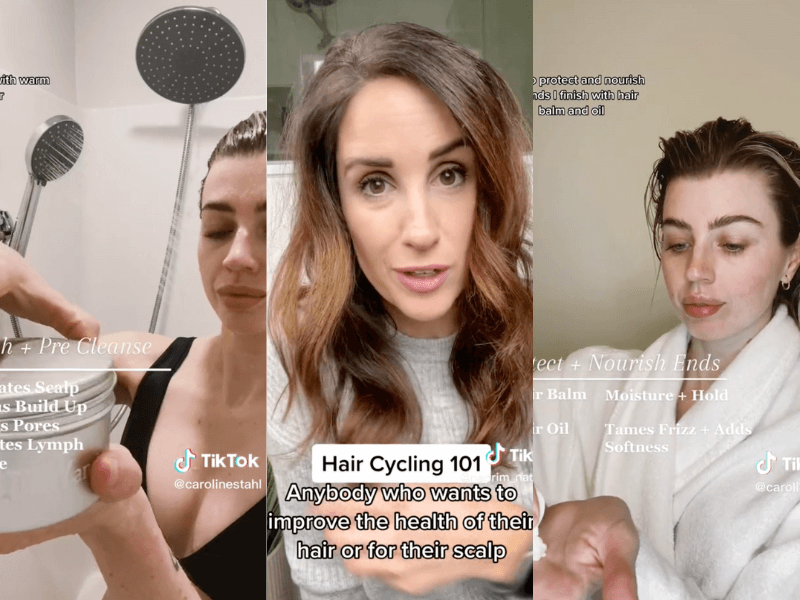Another month brings another set of valuable beauty trends to TikTok. The app's March beauty trends heavily emphasized self-love, encouraging users to reject filters and embrace their natural skin, all while documenting it for followers to see. Hair and scalp care is also surging in popularity, with hair slugging and cycling popping up on multiple beauty lovers’ for-you pages. Here are the need-to-know details, outlined by BeautyMatter:

Hair Slugging: Skin slugging took over TikTok back in 2021 as several users used the practice to gain deeply hydrated skin. It gained so much traction that several brands picked up on the beauty trend, creating specific SKUs to help consumers achieve nourished skin. Skincare brand Futurewise went as far as dedicating its whole debut range to slugging, using the popular ingredient snail mucin. Fast forward to this year, and TikTok has a new perspective on slugging; this time in the haircare category.
#Hairslugging currently holds over 31.2 million views on TikTok, with numerous influencers, everyday users, and brands jumping in to share their take on the trend. Hair slugging entails applying hair oil, moisture masks, or any moisturizing leave-in hair product from the mid-lengths to the ends of the hair. The practice involves wrapping the hair in either a sock or a silk bonnet for protection, leaving it in overnight, and washing it out in the morning. Several users have shared their results under the hashtag, with visible evidence of shinier, stronger, and healthier hair. The beauty trend has also been praised for its reparative properties for curls, resulting in curls that are tighter and stay place longer. Many brands have used the trend to advertise their products, including Coco and Eve, whose video demonstrating hair slugging with its Sweet Hair Repair Mask gained over 1.1 million views and almost 30 thousand likes.

Bold Glamour: At the beginning of the month, the Bold Glamour filter became popular on TikTok. Like most filters, Bold Glamour adds makeup elements to the user's face; the only difference is the difficulty detecting the use of its filter as compared to regular TikTok filters. Bold Glamour uses AI technology to lift cheekbones, make the nose smaller, enlarge the lips, and shape the brows― and gained over 200 million views within its first month of popularity. This sparked heavy debate. Several of the videos posted revealed faces with and without the filter, highlighting the dangers of such a filter setting unrealistic expectations for young users who might think the look was natural and not due to the filter.
Beauty and well-being brands have expressed their concern for misleading filters on the app and voiced their fears of social media contributing to mental health decline in its users. Teen health and well-being app Luna took to TikTok to address the risks of the filter, with an employee showing her before and after (filtered) face. The filter caused such hysteria that Dove created a campaign encouraging users to reject its use. Using hashtags such as #turnyourback, #speakbeautiful, and #detoxyourfeed, the beauty giant hopes to amplify the message that everyone is beautiful the way they are. The campaign has impacted the filter's reach on TikTok, with many videos under #boldglamour featuring individuals rejecting the beauty trend, followed by Dove's hashtags.

Unfiltered Makeup: In response to the aforementioned makeup filter, several TikTokers have published videos of their makeup routines that feature no editing or filters that showcase the texture of their skin. Makeup vlogger Lizzy Turner has become increasingly popular on the app for her involvement in the beauty trend, with the majority of videos she posts showcasing her bare skin, as well as an uplifting disclaimer about natural beauty that encourages viewers to love their pre-makeup face. The vlogger also addresses the dangers filters can present when she shares some comments she's received that express a negative view of her natural face compared to a filtered face. Several other beauty TikToker's have followed in Turner’s footsteps, amplifying the message that social media is not as it seems. They accompany their speeches with zoomed-in videos of their face in full makeup, highlighting scars, texture, acne, pores, and so on. #Unfilteredmakeup currently has 1.2 million views, which is only expected to grow as users continue to reject false narratives, among other trends such as deinfluencing.

Hair Cycling: Another hair trend that has adopted the benefits of skincare crazes is hair cycling, which replicates the regime of skin cycling. The method encourages those trying it to do a "cleanse wash" for the first wash of the week, followed by a "hydration wash" at the end of the week. The trend also dictates cutting down on everyday hair washing, which trains the user's hair to become less visibly oily and susceptible to build-up―as well as saving time and water.
The cleanse wash routine kicks off with gentle exfoliation of the scalp to rid the hair of product build-up, sebum, and dead skin cells. A hairbrush or pre-cleanse mask is recommended. However, this step does come with a cautionary warning that over-exfoliation of the scalp can contribute to microabrasions and, in some cases, encourage the scalp to produce more oil to replace what's been lost. The next step is a double shampoo using a cleansing product. The first wash removes the product and the second purifyies the scalp. The final step includes a lightweight yet hydrating conditioner, finishing with a light hair oil or serum to prevent damage and lock in moisture. The exfoliation step is discarded for the second wash of the week (hydrate), beginning with a double shampoo that uses a hydrating product instead of a clarifying one. The recommendation is to follow this step with a moisturizing hair mask, which replicates the process of the previously mentioned hair slugging. The trend currently has over 2.3 billion views and shows no signs of slowing down anytime soon.